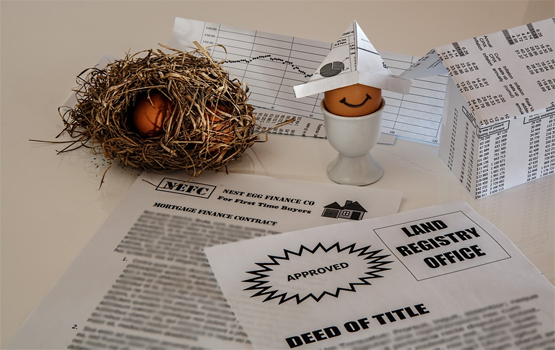How a Lender Makes Decisions About You
Mortgage financing has become very complex with constantly changing rates, terms and conditions. Knowing how a lender makes decisions about you and having the right documents in place will help you to speed up the mortgage process.
To ensure that they lend responsibly, lenders will consider a range of factors when they decide whether to accept your application for mortgage. Most lenders will consider your income, your job stability and how long you've worked for the same employer, your credit file (with your credit history and scoring), how long you've lived at your current address, your down payment, what kind of assets you have, and the balances in your bank accounts. Each lender will look at your finances to establish the amount of mortgage you can afford, but most often your credit file (with your credit history and credit score) has the most impact on their decision. To learn more, review the following:
Your Income & Financial Situation
Credit lenders want to evaluate your financial capacity to make your monthly payments.
- The majority of lenders require that you pay out no more than 32% of your provable gross income on all shelter costs (including principal, interest, taxes, and heat). This is known as the GDS ratio (Gross Debt Service Ratio). A general standard for GDS is 32 per cent, so your GDS should be lower than that to qualify for a mortgage.
- You may have other debt (car payments, credit cards, alimony, and any other loans), of course, but in combination with shelter costs, the total of all regular payments should not exceed 40% of your income. This is known as the TDS ratio (Total Debt Service Ratio). The industry standard for a TDS ratio is 40 per cent.
Your Credit History
Your credit file is a report of your financial history and performance with credit grantors. When lenders review credit file and credit reports, the number one thing they look for is financial risk of lending. If they approve you for mortgage, will you pay them back? No responsible lender will want to over-lend or encourage customers to take more debt than they can pay back.
- Lenders will review your record of payments on previous and current obligations. Late payments will negatively affect your ability to get credit because late payments in the past indicate that you will be unable to pay your debts and a stronger likelihood that you will make late payments again in the future.
- If you have recently had a mortgage, the lender will call the previous mortgagee (mortgage lender) directly to confirm your mortgage rating because mortgage payments history usually don't appear on the credit report.
- Essentially, lenders will review your credit scores. A credit score is a statistical summary of the information in your credit report at the moment it is reviewed. Credit scores are not part of your credit history and they don't appear on your personal credit report but they have an enormous impact on your financial picture. They are often calculated while your credit report is delivered from the credit reporting company to your creditor.
Down Payment
For majority of lenders you must supply verification satisfactory to the lender of accumulated savings from non-borrowed funds for your down payment.
- Your down payment should be at least 5% of the value of the property you want to purchase, (with a default-insured mortgage), which should come from your own savings or from a financial gift. The gift has to be verified and usually at least in the borrower's possession at least 15 days prior to closing with most lenders.
- If your down payment is from the sale of an existing property you will be required to provide Agreement of Purchase and Sale on your existing property.
- Your down payment can be in the form of investments (RRSP, term deposits, CSBs or other investments). Learn more about down payment.
Job Stability
Lenders generally look how stable is your employment and the flow of your income as a separate issue from the amount and type of your income. Having stable employment (like several years in the same company) or progressive income increases in a succession of related jobs is preferable.
Note: Keep in mind that different lenders may view the same credit score and some parts of your financial situation differently. Evaluations and the validity of an applicant can vary from lender to lender, both within the same category of lender as well as across different types of lenders (banks vs. non-depository lenders, B lenders and private lenders). It all depends on their experiences with other consumers in the same range, their business niches, their marketing plans and many other factors.<> Demonstrating stability, living at the same address for longer time and building other assets over time are very good ways to demonstrate that you are financially sound.
Don't worry, arranging mortgage is not that difficult — all it takes is a little reading on your part and the advice of a good mortgage professional. Use our mortgage info pages to learn more about mortgage.
HELPFUL INFORMATION:
- Buyer Info
- Mortgage Info
- Calculators
- Mortgage Insurance
- Real Estate Info
- Real Estate Glossary
- Real Estate Terminology
Mortgage Info
Regardless of how certain you are that you will get mortgage, it is always good idea to get pre-approved from the mortgage lender of your choice. This will officially address any questions about your eligibility, rate, terms and it will enable you to better negotiate for the property of your choice. Read more...
Buyer Info
Since choosing a right property to buy starts with needs and desires and finishes with a sizable portion of your earnings used for paying for it, it's important to ensure that the property you choose both meets your needs and is a good "fit" with your financial situation.
Read more...
Mortgage Insurance
Learn more about mortgage insurance, the one of the most ambiguous and least understood terms in the industry. Since mortgage insurance is very often confused with other types of insurance associated with home ownership, on this page we will explain the difference, help you understand it better, and learn more about different options available to you. Knowing and understand more about mortgage insurance will help you decide what coverage is appropriate for your specific needs. Read more...


